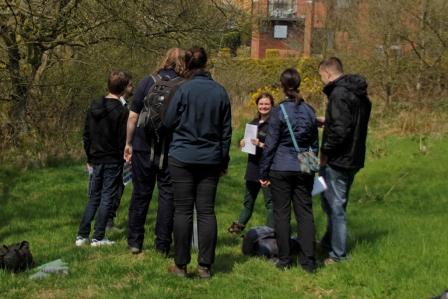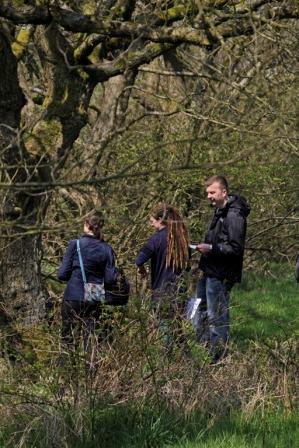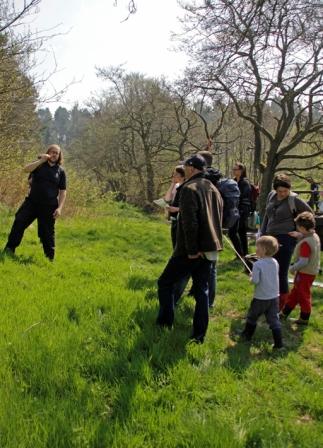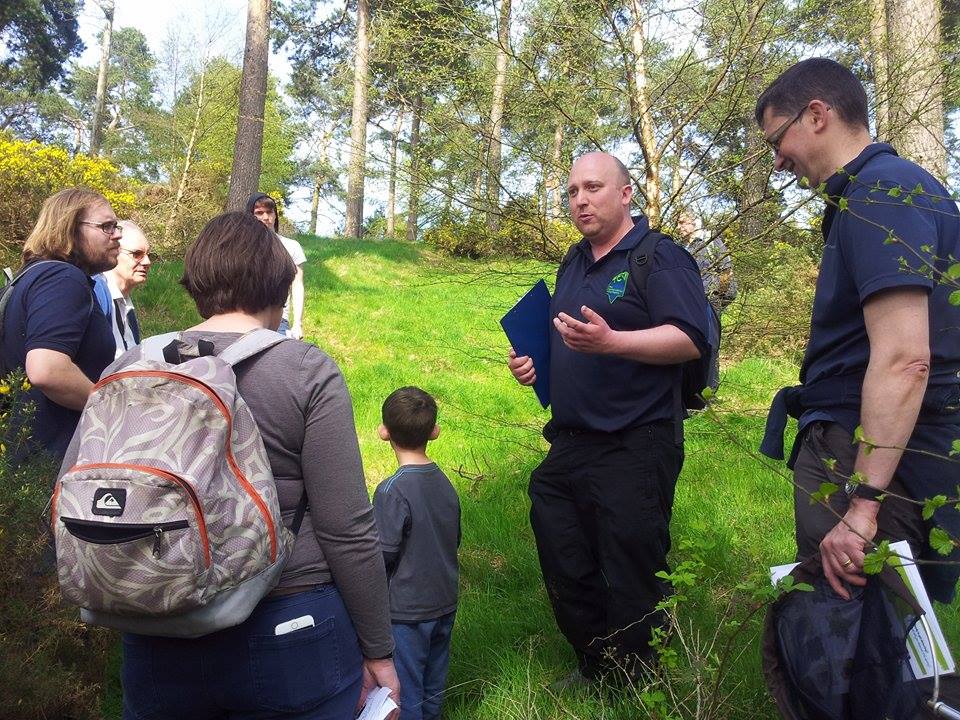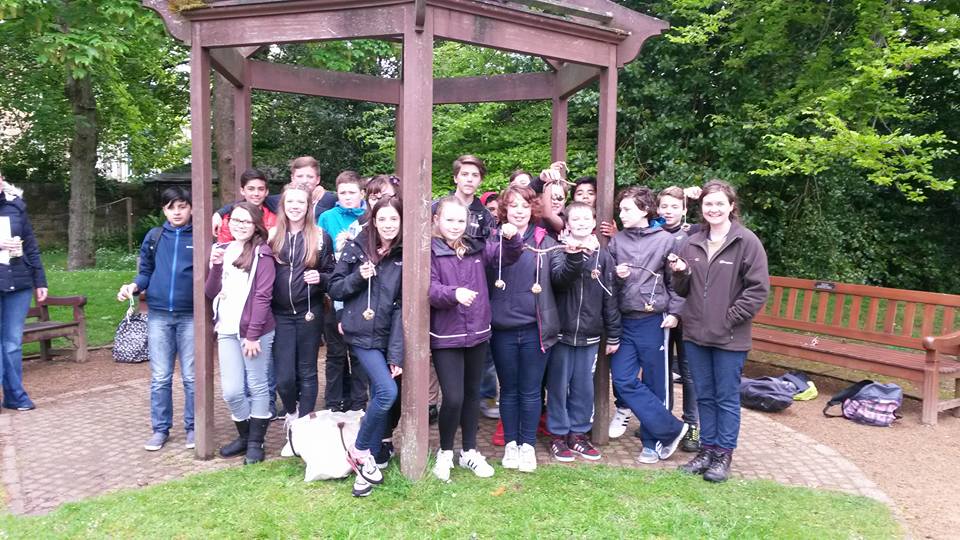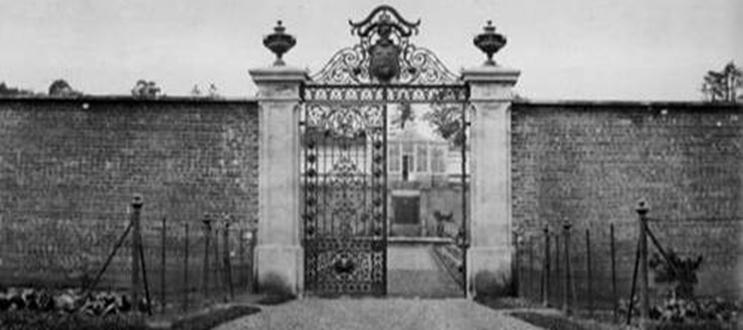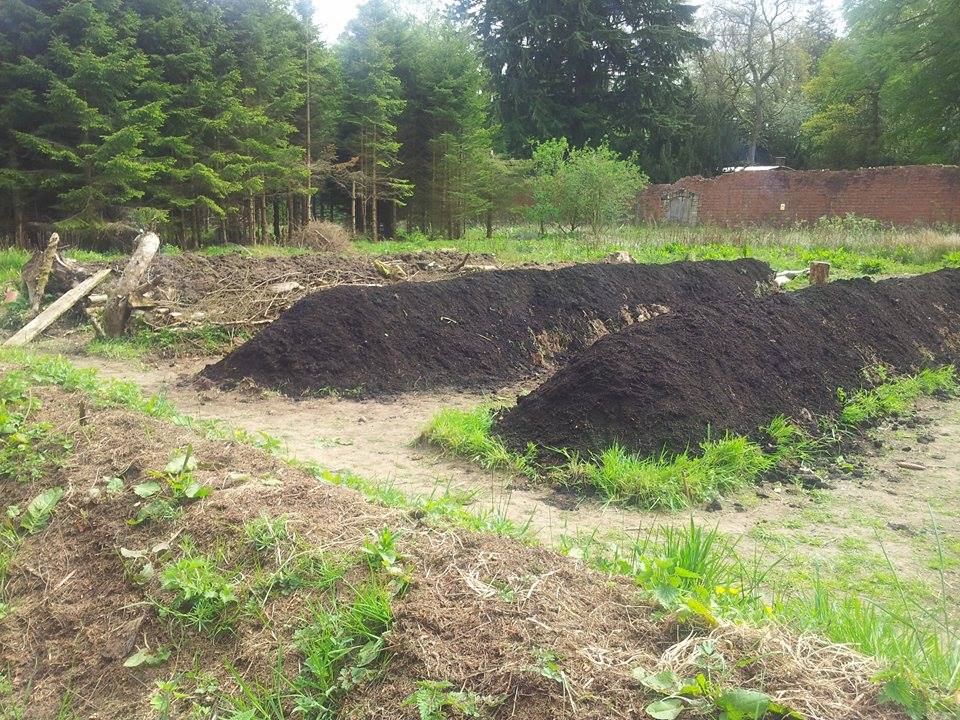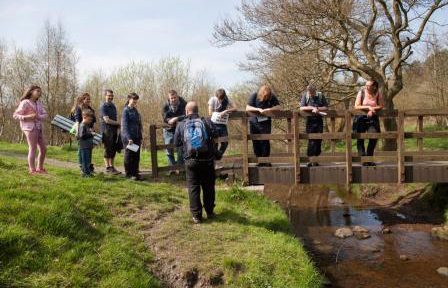
Ok so my puns haven’t been all that amazing recently, but my adventures with TCV certainly have! I mentioned in the last blog that I was preparing to run my first ever event. As part of Falkirk Nature Festival I was asked to run a Woodland Biodiversity Workshop, for which I had to do my own risk assessments, site visits, event plans and advertisement. It was really exciting to be let loose and be able to put all that I’ve learn over the past three months into practice. With help from my fellow Natural Networks trainees Stephen Porch and Paul Barclay and Senior Project Officer Rosie Walker, we set off to inspire the people of Falkirk about their local wildlife!
Not sure if I’ve mentioned this before, but I quite like lichen, and so we started the workshop with a mini lichen ID session. This enabled the participants to find out what the air quality is like in their local patch and luckily it was good news!
Tree wizard Stephen then ran a Tree ID walk through the newly planted woodland and talked about ID tips and the ways we use and rely on trees.
We then finished with a mammal tracking workshop led by Paul which went down a storm. We came across footprints, bedding material and eventually found a great big badger sett which was very exciting!
We had some little ones join us on the day and Rosie led them on a mini beast hunt. We received some great feedback from our participants and overall it was an epic nature filled day! There was a really nice mix of people taking part, some with already existing interests in nature and some who were new to it, and I really think we helped to connect some people to the outdoors!
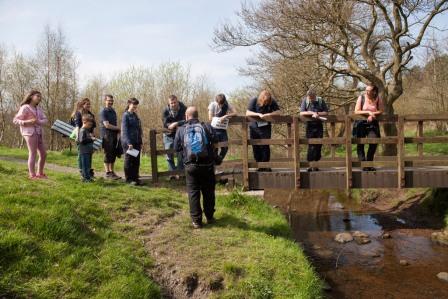
Paul Barclay showing is how to spot signs of Otters. Photo by David Palmar http://www.photoscot.co.uk/
My second May mission was to run two workshops with fellow trainees Emma Straughan and Lucy Graham for Hyndland Secondary School first year students, to help them achieve their John Muir award. For this we did another cheeky lichen session and a bug hunt which we used to demonstrate the effects of urbanisation on invertebrates.
Me, Jenny and Lucy went to our first big event with TCV where we manned a stall at RSPB’s Scotland’s Big Nature Festival. Our stalls theme was pollination and pollinators and so we were surrounded by bumblebee and butterfly puzzles, pollinator quizzes, and badge making. I did a lot of face painting, which was actually quite stressful considering I can’t draw… It was great to be surrounded by nature lovers and different conservation organisations and businesses including OPAL, Hessilhead Wildlife Rescue Centre, Firth of Forth Lobster Hatchery, The BTO, The British Dragonfly Society, The John Muir Trust, and Ethical Ales 😉 to name a few!
Later in the month I joined Senior Project Officer Chris Peach with one of his corporate volunteer groups. I met Chris and thirty staff members from The Royal Bank of Scotland (RBS) at the Lost Gardens of Penicuik near Edinburgh.
What a magical place to spend a day! The Gardens (much like the famous Lost Gardens of Heligan in Cornwall) fell into disuse many years ago and were forgotten. That was until the Penicuik Development Trust began the community food project to restore the lost walled garden of 1875.
We set to it helping Penicuik’s lost gardeners stack bricks onto pallets that had fallen from the gardens walls so that they can be restored, and building Hugel beds. WHAT’S A HUGEL BED YOU ASK? Well let me tell you! Hugelkultur, pronounced Hoo-gul-culture, means hill culture or hill mound. But these are not just any mounds; they are very exciting self sustaining food producing mounds! Simply pile logs, branches, leaves, grass clippings, straw, cardboard, petroleum-free newspaper, manure, compost or whatever other organic matter you have, top it with soil and plant your herbs and veggies! The gradual decay of wood is a consistent source of long-term nutrients for the plants. A large bed might give out a constant supply of nutrients for 20 years. The composting wood also generates heat which should extend the growing season and aerates the soils as it breaks down. The logs and branches act like a sponge. Rainwater is stored and then released during drier times. Actually you may never need to water your Hugel bed again after the first year (except during long term droughts).
How exciting is that! I think these would be great fun to build with a community group as collecting all the twigs and bits and pieces that go inside the Hugel beds with the RBS volunteers was great fun and it was extremely satisfying to stand back and admire the finished product!
I loved spending the day with the bank staff. They were so enthusiastic and excited to be out of the office. It made me realise how the majority of people really don’t get to spend much time outside, which is crazy as there are countless benefits to it! It improves your health, your well being, your concentration, your work performance, your sleep and your mood! The volunteers practically skipped home! I even heard one lady say ‘This has been the best day at work in a long time!’
